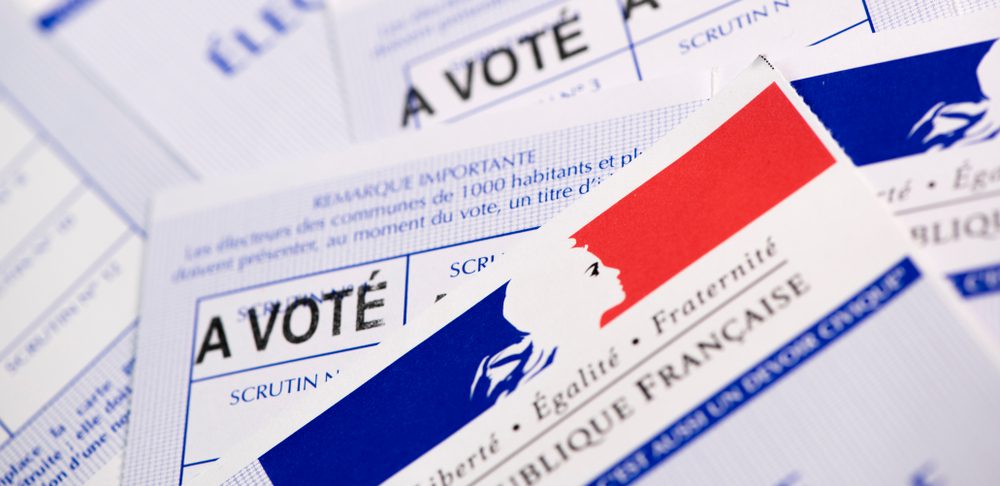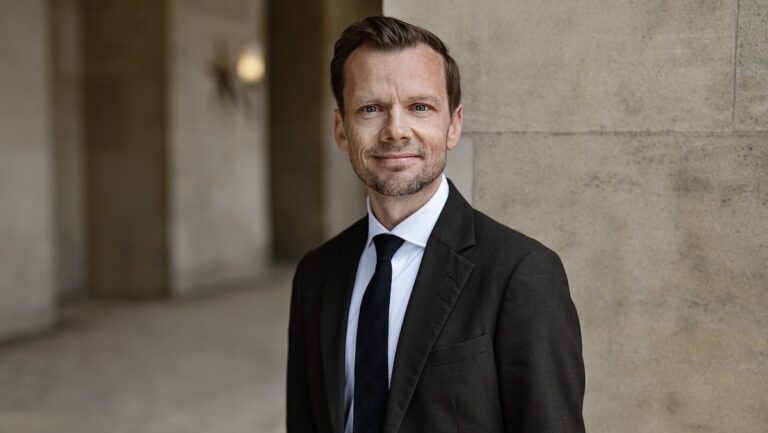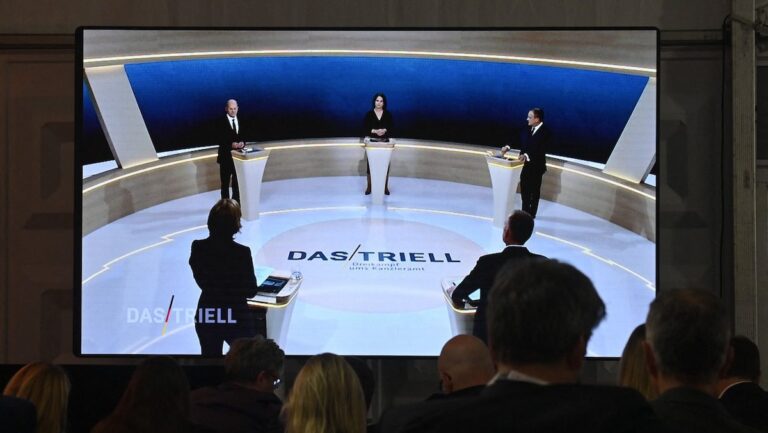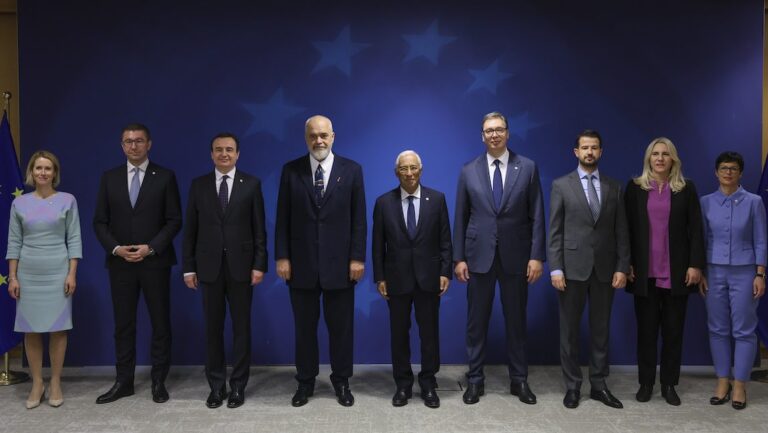Marine Le Pen has emerged the victor among the challengers to President Emmanuel Macron in the first round of the French presidential election; she will face the incumbent Macron in the second round. Emmanuel Macron received 27.6% of the vote and Marine Le Pen 23.41%. Abstention was around 25.14%—slightly better than expected, as the polls were suggesting a possible 28% abstention.
The candidate from the left-wing party La France Insoumise, Jean-Luc Mélenchon, came in third with 21.95% of the vote. Uncertainty hovered during the evening while the results were being announced, because Jean-Luc Mélenchon’s result came significantly closer to that of Marine Le Pen as the ballots were being counted, to the point where it was possible to envisage the presence of the left-wing candidate in the second round. Indeed, Jean-Luc Mélenchon obtained good results in the big cities, which were counted last, because their polling stations closed at 20:00—two hours after stations closed in the rest of the country. In the end, a significant gap of 500,000 votes prevented him from reaching the second round, and he conceded defeat in the night, without proposing a recount. The candidacy of the communist Fabien Roussel—who obtained nearly 800,000 votes and 2.31% of the vote—prevented him from reaching the second round, much to the disappointment of Jean-Luc Mélenchon. In 2017, the two far-left formations had made a joint candidacy, but no agreement was found in 2022.
Unusual in a French election, no candidate is in the 10% vote bracket. The fourth most popular candidate was Éric Zemmour, who received 7.05% of the vote. The Reconquête party had communicated extensively in the past few days on its powerful grassroots mobilisation, excellent scores on YouTube and Twitter, and the possibility of poll-rigging, or the existence of parallel polls generated by artificial intelligence—such as the forecasts of the artificial intelligence application Qotmii. Reconquête activists also relied heavily on a so-called “hidden vote” for Éric Zemmour, assumed to be invisible to pollsters. At each election, this “hidden vote” is invoked by candidates, but it has never been really observed on the ground. The weak election results of the ex-journalist testifies to the difficulty he faced taking root in the real country—the mobilisation of social networks being by essence only partial and virtual.
The main surprise of the election lies in the abysmal collapse of the two governing parties, which have held the reins of power for decades in France, namely the Parti Socialiste (PS) for the Left and Les Républicains (LR) for the Right. Anne Hidalgo for the PS won only 1.74% of the vote—less than some “small” candidates such as Jean Lassalle or Nicolas Dupont-Aignan—and Valérie Pécresse for the LR finished at 4.79%, below the legal threshold of 5% allowing her to be reimbursed for her campaign expenses. The two parties will therefore face very serious financial difficulties in the coming weeks, as will the Green candidate Yannick Jadot, with 4.58%, who has several million campaign expenses to reimburse.
The repositioning of the political forces began as soon as the results were announced. Even if the headliner is the same as in 2017, the balance of power and the political situation have radically changed, and the mechanisms of vote transfer are likely to be complicated. Nothing will be automatic, neither for one nor for the other of the two finalists.
For the first time, Marine Le Pen has a certain reserves of votes. Anne Hidalgo, Yannick Jadot, and Fabien Roussel have explicitly called for a vote for the incumbent president. Jean-Luc Mélenchon and Philippe Poutou hammered the slogan: “Not a single vote for Marine Le Pen.” But they did not, however, formally call for a vote for Macron. Valérie Pécresse has called for support for Emmanuel Macron, but there is no unanimity in her camp. On the other side of the political spectrum, Nicolas Dupont-Aignan and Éric Zemmour have announced that they will support Marine Le Pen in the second round. The game looks very open, because there is a strong movement of rejection of Emmanuel Macron that did not exist in 2017.
The second round of the election will be held on Sunday, April 24th. The televised debate between Emmanuel Macron and Marine Le Pen is scheduled for Wednesday, April 20th.





